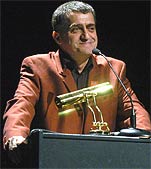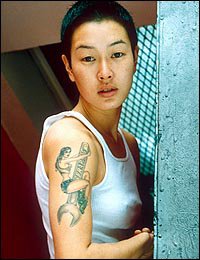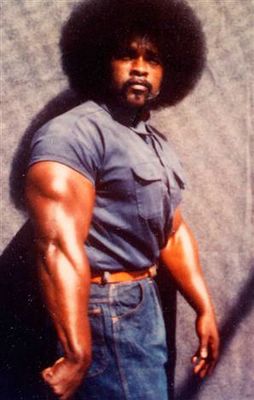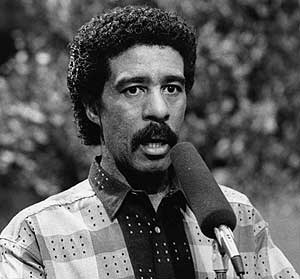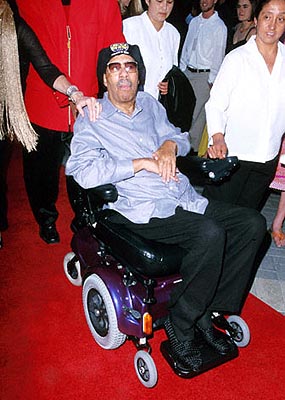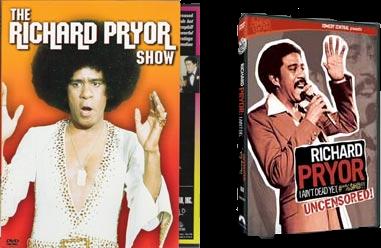
Julian Marias, alumno de José Ortega y Gasset y Xavier Zubiri, ha muerto en Madrid a los 91 años. En los últimos años, Marías había manifestado su decepción porque "la filosofía se haya abandonado". "Hasta en Alemania, que era un país con una interesante trayectoria filosófica, se ha perdido la vocación por la filosofía. Y eso que la sociedad contemporánea la necesita más que nunca", decía. Por eso, asumía, con cierto sentido del humor, que "los filósofos somos cuatro gatos sin ninguna importancia social".
En 1942 fue víctima de un famoso escándalo cuando su tesis doctoral, dirigida por Zubiri, fue suspendida por el tribunal correspondiente, con el voto en contra de Manuel García Morente. En 1982, cuando el papa Juan Pablo II creó el Consejo Internacional Pontificio para la Cultura, fue Julián Marías el único español entonces integrante del mismo. «El Padre. No está bien que sea yo quien escriba este artículo. Es poco elegante que el padre hable del hijo o el hijo del padre. Pero el padre cumple ochenta años el 17 de junio y el hijo ha tenido que oír en su vida demasiadas sandeces en boca de imbéciles o de malvados. En este país casi nadie recuerda nada; de los que recuerdan; muchos falsean; y los que no tienen edad simplemente no saben. Además, en la literatura y el cine hay tradición de hijos justicieros, o vengativos o rencorosos. No me importa hacer por una vez ese papel. Este es un artículo, así pues, rencoroso, como podrían serlo los que escribieran los vástagos de otros republicanos, fuera cual fuese la profesión de sus padres. Este padre tenía seguramente dos vocaciones, por recuperar la palabra antigua pero vigente en su juventud: la de escritor y la de profesor. La segunda no pudo cumplirla, la primera sí, y mucho, pero a duras penas durante bastantes años. El padre estuvo en el bando republicano durante la Guerra Civil; escribía en el Abc de Madrid y en Hora de España: colaboró con Besteiro –tan ensalzado hoy por los socialistas y por casi todo el mundo–, hasta su rendición y aun después. Al terminar la contienda, fue denunciado por su mejor amigo y por un profesor de arqueología que luego reinó en su cátedra durante largos decenios (el supuesto amigo también obtuvo la suya más adelante, en Santiago, y aún se las dio de izquierdista). Pasó un tiempo en la cárcel y pudo ser fusilado. Fue juzgado cuando lo que había que demostrar era la inocencia; tuvo suerte, y algún bendito testigo al que cuando el juez le espetó: "Oiga, le recuerdo que usted ha sido llamado como testigo de cargo", tuvo el valor de contestar: "Ah, yo creía que se me había llamado para decir la verdad". Pudo salir, pero se encontró con la hostilidad y el veto del régimen victorioso. Por razones políticas le fue suspendida la tesis en 1942, no pudo ser doctor hasta 1951, año en el que por fin se le permitió publicar artículos en la prensa diaria. Cuando la cátedra de su maestro Ortega hubo de cubrirse en 1953, un influyente miembro del Opus escribió que si el padre llegaba a ocuparla la consecuencia sería clara y funesta: nada menos que "la República". El padre no opositó. Se sabe que cuando fue propuesto para la Real Academia, Franco se lamentó con estas palabras: "Es un enemigo del régimen, pero no puedo hacer nada. Sobre la Academia no tenemos control directo". Cuando amainó la ira y se pudo pensar que el padre se incorporara por fin a la Universidad, él no estaba dispuesto a solicitar el certificado de adhesión al régimen que por fuerza obtuvieron cuantos sí se incorporaron a ella; todos, también los legendarios héroes que fueron expulsados más tarde. ¿Qué ocurría con los compañeros de generación mientras tanto, durante la guerra y la victoria? Algunos han muerto ya y otros están vivos y son muy celebrados: unos con justicia, otros sin tanta. Todos fueron cambiando, unos pronto, otros tardíamente. Algunos reconocieron sus debilidades o equivocaciones del pasado; otros las ocultaron; algunos hasta las negaron y tergiversaron, biografía-ficción debería llamarse el género. No importa mucho hoy día. Pero en los años treinta y cuarenta y cincuenta sí importó bastante. Y así, mientras al padre le pasaba cuanto vengo contando, el otro filósofo tildaba en un libro de "jolgorio plebeyo" a la República y ocupaba el saneado puesto de delegado de Tabacalera en una provincia; el novelista eximio se ofrecía como delator y luego recibía alguna condecoración franquista; el poeta, el humanista, el filólogo, el otro novelista: todos de Falange, colaboradores del diario Arriba, o rectores de Universidad, o intérpretes entre Franco y Hitler; fue ministro quien luego pudo defender al pueblo, tuvo cargos institucionales el historiador que lanzó soflamas en plena guerra contra "los tibios". Nadie les ha pasado cuentas, y está bastante bien que así sea. La etapa democrática los ha jaleado y los considera maestros. Lo serán sin duda, de sus disciplinas. Mientras tanto el padre republicano y vetado ha sido más bien ignorado por esta etapa democrática, por los herederos de Julián Besteiro. No ha tenido reconocimientos oficiales, igual que en tiempos de Franco. Ni siquiera un mísero Premio Nacional de Ensayo, que se ha otorgado hasta a autores noveles con obras más bien escolares. Nada de esto es grave, no creo que al padre le importe mucho. Pero el hijo ha tenido que escuchar muchas sandeces en boca de imbéciles y de malvados. En otro periódico ha escrito una semblanza pacífica. El hijo se disculpa por hacer hoy público en este su resentimiento.» Javier Marías, 16 de junio de 1994.
«El Padre. No está bien que sea yo quien escriba este artículo. Es poco elegante que el padre hable del hijo o el hijo del padre. Pero el padre cumple ochenta años el 17 de junio y el hijo ha tenido que oír en su vida demasiadas sandeces en boca de imbéciles o de malvados. En este país casi nadie recuerda nada; de los que recuerdan; muchos falsean; y los que no tienen edad simplemente no saben. Además, en la literatura y el cine hay tradición de hijos justicieros, o vengativos o rencorosos. No me importa hacer por una vez ese papel. Este es un artículo, así pues, rencoroso, como podrían serlo los que escribieran los vástagos de otros republicanos, fuera cual fuese la profesión de sus padres. Este padre tenía seguramente dos vocaciones, por recuperar la palabra antigua pero vigente en su juventud: la de escritor y la de profesor. La segunda no pudo cumplirla, la primera sí, y mucho, pero a duras penas durante bastantes años. El padre estuvo en el bando republicano durante la Guerra Civil; escribía en el Abc de Madrid y en Hora de España: colaboró con Besteiro –tan ensalzado hoy por los socialistas y por casi todo el mundo–, hasta su rendición y aun después. Al terminar la contienda, fue denunciado por su mejor amigo y por un profesor de arqueología que luego reinó en su cátedra durante largos decenios (el supuesto amigo también obtuvo la suya más adelante, en Santiago, y aún se las dio de izquierdista). Pasó un tiempo en la cárcel y pudo ser fusilado. Fue juzgado cuando lo que había que demostrar era la inocencia; tuvo suerte, y algún bendito testigo al que cuando el juez le espetó: "Oiga, le recuerdo que usted ha sido llamado como testigo de cargo", tuvo el valor de contestar: "Ah, yo creía que se me había llamado para decir la verdad". Pudo salir, pero se encontró con la hostilidad y el veto del régimen victorioso. Por razones políticas le fue suspendida la tesis en 1942, no pudo ser doctor hasta 1951, año en el que por fin se le permitió publicar artículos en la prensa diaria. Cuando la cátedra de su maestro Ortega hubo de cubrirse en 1953, un influyente miembro del Opus escribió que si el padre llegaba a ocuparla la consecuencia sería clara y funesta: nada menos que "la República". El padre no opositó. Se sabe que cuando fue propuesto para la Real Academia, Franco se lamentó con estas palabras: "Es un enemigo del régimen, pero no puedo hacer nada. Sobre la Academia no tenemos control directo". Cuando amainó la ira y se pudo pensar que el padre se incorporara por fin a la Universidad, él no estaba dispuesto a solicitar el certificado de adhesión al régimen que por fuerza obtuvieron cuantos sí se incorporaron a ella; todos, también los legendarios héroes que fueron expulsados más tarde. ¿Qué ocurría con los compañeros de generación mientras tanto, durante la guerra y la victoria? Algunos han muerto ya y otros están vivos y son muy celebrados: unos con justicia, otros sin tanta. Todos fueron cambiando, unos pronto, otros tardíamente. Algunos reconocieron sus debilidades o equivocaciones del pasado; otros las ocultaron; algunos hasta las negaron y tergiversaron, biografía-ficción debería llamarse el género. No importa mucho hoy día. Pero en los años treinta y cuarenta y cincuenta sí importó bastante. Y así, mientras al padre le pasaba cuanto vengo contando, el otro filósofo tildaba en un libro de "jolgorio plebeyo" a la República y ocupaba el saneado puesto de delegado de Tabacalera en una provincia; el novelista eximio se ofrecía como delator y luego recibía alguna condecoración franquista; el poeta, el humanista, el filólogo, el otro novelista: todos de Falange, colaboradores del diario Arriba, o rectores de Universidad, o intérpretes entre Franco y Hitler; fue ministro quien luego pudo defender al pueblo, tuvo cargos institucionales el historiador que lanzó soflamas en plena guerra contra "los tibios". Nadie les ha pasado cuentas, y está bastante bien que así sea. La etapa democrática los ha jaleado y los considera maestros. Lo serán sin duda, de sus disciplinas. Mientras tanto el padre republicano y vetado ha sido más bien ignorado por esta etapa democrática, por los herederos de Julián Besteiro. No ha tenido reconocimientos oficiales, igual que en tiempos de Franco. Ni siquiera un mísero Premio Nacional de Ensayo, que se ha otorgado hasta a autores noveles con obras más bien escolares. Nada de esto es grave, no creo que al padre le importe mucho. Pero el hijo ha tenido que escuchar muchas sandeces en boca de imbéciles y de malvados. En otro periódico ha escrito una semblanza pacífica. El hijo se disculpa por hacer hoy público en este su resentimiento.» Javier Marías, 16 de junio de 1994.
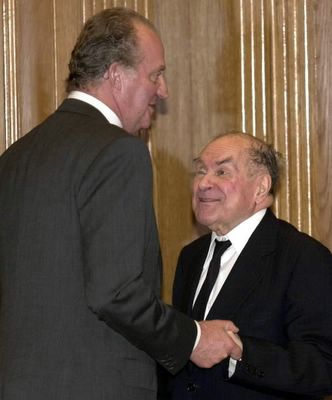
 «El Padre. No está bien que sea yo quien escriba este artículo. Es poco elegante que el padre hable del hijo o el hijo del padre. Pero el padre cumple ochenta años el 17 de junio y el hijo ha tenido que oír en su vida demasiadas sandeces en boca de imbéciles o de malvados. En este país casi nadie recuerda nada; de los que recuerdan; muchos falsean; y los que no tienen edad simplemente no saben. Además, en la literatura y el cine hay tradición de hijos justicieros, o vengativos o rencorosos. No me importa hacer por una vez ese papel. Este es un artículo, así pues, rencoroso, como podrían serlo los que escribieran los vástagos de otros republicanos, fuera cual fuese la profesión de sus padres. Este padre tenía seguramente dos vocaciones, por recuperar la palabra antigua pero vigente en su juventud: la de escritor y la de profesor. La segunda no pudo cumplirla, la primera sí, y mucho, pero a duras penas durante bastantes años. El padre estuvo en el bando republicano durante la Guerra Civil; escribía en el Abc de Madrid y en Hora de España: colaboró con Besteiro –tan ensalzado hoy por los socialistas y por casi todo el mundo–, hasta su rendición y aun después. Al terminar la contienda, fue denunciado por su mejor amigo y por un profesor de arqueología que luego reinó en su cátedra durante largos decenios (el supuesto amigo también obtuvo la suya más adelante, en Santiago, y aún se las dio de izquierdista). Pasó un tiempo en la cárcel y pudo ser fusilado. Fue juzgado cuando lo que había que demostrar era la inocencia; tuvo suerte, y algún bendito testigo al que cuando el juez le espetó: "Oiga, le recuerdo que usted ha sido llamado como testigo de cargo", tuvo el valor de contestar: "Ah, yo creía que se me había llamado para decir la verdad". Pudo salir, pero se encontró con la hostilidad y el veto del régimen victorioso. Por razones políticas le fue suspendida la tesis en 1942, no pudo ser doctor hasta 1951, año en el que por fin se le permitió publicar artículos en la prensa diaria. Cuando la cátedra de su maestro Ortega hubo de cubrirse en 1953, un influyente miembro del Opus escribió que si el padre llegaba a ocuparla la consecuencia sería clara y funesta: nada menos que "la República". El padre no opositó. Se sabe que cuando fue propuesto para la Real Academia, Franco se lamentó con estas palabras: "Es un enemigo del régimen, pero no puedo hacer nada. Sobre la Academia no tenemos control directo". Cuando amainó la ira y se pudo pensar que el padre se incorporara por fin a la Universidad, él no estaba dispuesto a solicitar el certificado de adhesión al régimen que por fuerza obtuvieron cuantos sí se incorporaron a ella; todos, también los legendarios héroes que fueron expulsados más tarde. ¿Qué ocurría con los compañeros de generación mientras tanto, durante la guerra y la victoria? Algunos han muerto ya y otros están vivos y son muy celebrados: unos con justicia, otros sin tanta. Todos fueron cambiando, unos pronto, otros tardíamente. Algunos reconocieron sus debilidades o equivocaciones del pasado; otros las ocultaron; algunos hasta las negaron y tergiversaron, biografía-ficción debería llamarse el género. No importa mucho hoy día. Pero en los años treinta y cuarenta y cincuenta sí importó bastante. Y así, mientras al padre le pasaba cuanto vengo contando, el otro filósofo tildaba en un libro de "jolgorio plebeyo" a la República y ocupaba el saneado puesto de delegado de Tabacalera en una provincia; el novelista eximio se ofrecía como delator y luego recibía alguna condecoración franquista; el poeta, el humanista, el filólogo, el otro novelista: todos de Falange, colaboradores del diario Arriba, o rectores de Universidad, o intérpretes entre Franco y Hitler; fue ministro quien luego pudo defender al pueblo, tuvo cargos institucionales el historiador que lanzó soflamas en plena guerra contra "los tibios". Nadie les ha pasado cuentas, y está bastante bien que así sea. La etapa democrática los ha jaleado y los considera maestros. Lo serán sin duda, de sus disciplinas. Mientras tanto el padre republicano y vetado ha sido más bien ignorado por esta etapa democrática, por los herederos de Julián Besteiro. No ha tenido reconocimientos oficiales, igual que en tiempos de Franco. Ni siquiera un mísero Premio Nacional de Ensayo, que se ha otorgado hasta a autores noveles con obras más bien escolares. Nada de esto es grave, no creo que al padre le importe mucho. Pero el hijo ha tenido que escuchar muchas sandeces en boca de imbéciles y de malvados. En otro periódico ha escrito una semblanza pacífica. El hijo se disculpa por hacer hoy público en este su resentimiento.» Javier Marías, 16 de junio de 1994.
«El Padre. No está bien que sea yo quien escriba este artículo. Es poco elegante que el padre hable del hijo o el hijo del padre. Pero el padre cumple ochenta años el 17 de junio y el hijo ha tenido que oír en su vida demasiadas sandeces en boca de imbéciles o de malvados. En este país casi nadie recuerda nada; de los que recuerdan; muchos falsean; y los que no tienen edad simplemente no saben. Además, en la literatura y el cine hay tradición de hijos justicieros, o vengativos o rencorosos. No me importa hacer por una vez ese papel. Este es un artículo, así pues, rencoroso, como podrían serlo los que escribieran los vástagos de otros republicanos, fuera cual fuese la profesión de sus padres. Este padre tenía seguramente dos vocaciones, por recuperar la palabra antigua pero vigente en su juventud: la de escritor y la de profesor. La segunda no pudo cumplirla, la primera sí, y mucho, pero a duras penas durante bastantes años. El padre estuvo en el bando republicano durante la Guerra Civil; escribía en el Abc de Madrid y en Hora de España: colaboró con Besteiro –tan ensalzado hoy por los socialistas y por casi todo el mundo–, hasta su rendición y aun después. Al terminar la contienda, fue denunciado por su mejor amigo y por un profesor de arqueología que luego reinó en su cátedra durante largos decenios (el supuesto amigo también obtuvo la suya más adelante, en Santiago, y aún se las dio de izquierdista). Pasó un tiempo en la cárcel y pudo ser fusilado. Fue juzgado cuando lo que había que demostrar era la inocencia; tuvo suerte, y algún bendito testigo al que cuando el juez le espetó: "Oiga, le recuerdo que usted ha sido llamado como testigo de cargo", tuvo el valor de contestar: "Ah, yo creía que se me había llamado para decir la verdad". Pudo salir, pero se encontró con la hostilidad y el veto del régimen victorioso. Por razones políticas le fue suspendida la tesis en 1942, no pudo ser doctor hasta 1951, año en el que por fin se le permitió publicar artículos en la prensa diaria. Cuando la cátedra de su maestro Ortega hubo de cubrirse en 1953, un influyente miembro del Opus escribió que si el padre llegaba a ocuparla la consecuencia sería clara y funesta: nada menos que "la República". El padre no opositó. Se sabe que cuando fue propuesto para la Real Academia, Franco se lamentó con estas palabras: "Es un enemigo del régimen, pero no puedo hacer nada. Sobre la Academia no tenemos control directo". Cuando amainó la ira y se pudo pensar que el padre se incorporara por fin a la Universidad, él no estaba dispuesto a solicitar el certificado de adhesión al régimen que por fuerza obtuvieron cuantos sí se incorporaron a ella; todos, también los legendarios héroes que fueron expulsados más tarde. ¿Qué ocurría con los compañeros de generación mientras tanto, durante la guerra y la victoria? Algunos han muerto ya y otros están vivos y son muy celebrados: unos con justicia, otros sin tanta. Todos fueron cambiando, unos pronto, otros tardíamente. Algunos reconocieron sus debilidades o equivocaciones del pasado; otros las ocultaron; algunos hasta las negaron y tergiversaron, biografía-ficción debería llamarse el género. No importa mucho hoy día. Pero en los años treinta y cuarenta y cincuenta sí importó bastante. Y así, mientras al padre le pasaba cuanto vengo contando, el otro filósofo tildaba en un libro de "jolgorio plebeyo" a la República y ocupaba el saneado puesto de delegado de Tabacalera en una provincia; el novelista eximio se ofrecía como delator y luego recibía alguna condecoración franquista; el poeta, el humanista, el filólogo, el otro novelista: todos de Falange, colaboradores del diario Arriba, o rectores de Universidad, o intérpretes entre Franco y Hitler; fue ministro quien luego pudo defender al pueblo, tuvo cargos institucionales el historiador que lanzó soflamas en plena guerra contra "los tibios". Nadie les ha pasado cuentas, y está bastante bien que así sea. La etapa democrática los ha jaleado y los considera maestros. Lo serán sin duda, de sus disciplinas. Mientras tanto el padre republicano y vetado ha sido más bien ignorado por esta etapa democrática, por los herederos de Julián Besteiro. No ha tenido reconocimientos oficiales, igual que en tiempos de Franco. Ni siquiera un mísero Premio Nacional de Ensayo, que se ha otorgado hasta a autores noveles con obras más bien escolares. Nada de esto es grave, no creo que al padre le importe mucho. Pero el hijo ha tenido que escuchar muchas sandeces en boca de imbéciles y de malvados. En otro periódico ha escrito una semblanza pacífica. El hijo se disculpa por hacer hoy público en este su resentimiento.» Javier Marías, 16 de junio de 1994.



